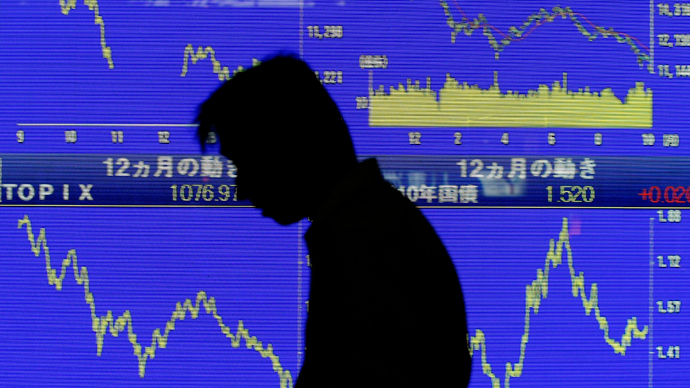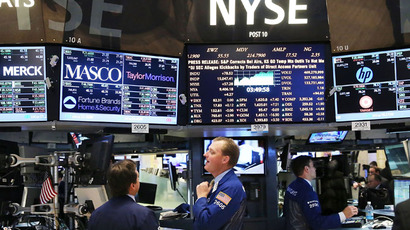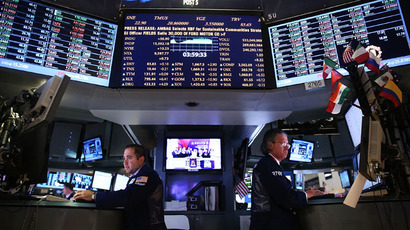Japan's Nikkei loses more than 6 percent on sharp fluctuations in the yen

Japanese stocks nosedived on Thursday, after the yen jumped to a 10 – week high against the US dollar. The exchange rate gains that follow almost five – months of losses could now erode Japan’s export revenue.
On Thursday the Nikkei 225 index was down 22% from its five –and-a-half –year high registered in May. The ups and downs of the yen was the key concern for investors.
The Japanese currency lost about 30% against the US dollar between November and May, after the country’s central bank decided to double the money supply in an effort to boost the country’s economy. However, this drop was replaced by a sharp pick up, with the yen adding about 8% since May 22 on concerns the US may scale back its stimulus programme.
"Whether the yen's strength will persist or not is a key," as the BBC quote Hiroyuki Fukunaga, chief executive of Investrust.
"If it does, companies' earnings will be trimmed, and investors are extremely concerned that the incentive to chase the Japanese market higher will be erased," Hiroyuki Fukunaga added.
However, Chief Cabinet Secretary Yoshihide Suga on Thursday morning rushed to calm down traders saying it’s “important not to swing from joy to sorrow every time stock prices rise or fall.”
“The Japanese economy is steadily improving,” he assured.
The revised first-quarter gross domestic product figures in Japan made public on Monday indicated that the economy grew at 4.1% annually between January and March, which is better than the originally estimated 3.5% growth.
Heavy losses were also seen in China and across other Southeast Asian markets; US and European stock futures also fell. Investors sold off stocks and transferred cash into traditional safe haven assets such as treasuries, Japanese government bonds and the yen.
The broader market fall across Asia comes amidst the uncertainty over the Fed’s decision on monetary policy. On May 22 Chairman Ben Bernanke said that the US central bank might start removing its bond-buying program as soon as June if the economy improved, especially the labor market.
"Market volatility is expected to stay elevated until the Fed's policy meeting next week, at which we may see with more clarity into the tapering issue," Yuji Saito, director of foreign exchange at Credit Agricole in Tokyo, told the BBC.
The next meeting of the Fed is scheduled for June 18 - 19.














